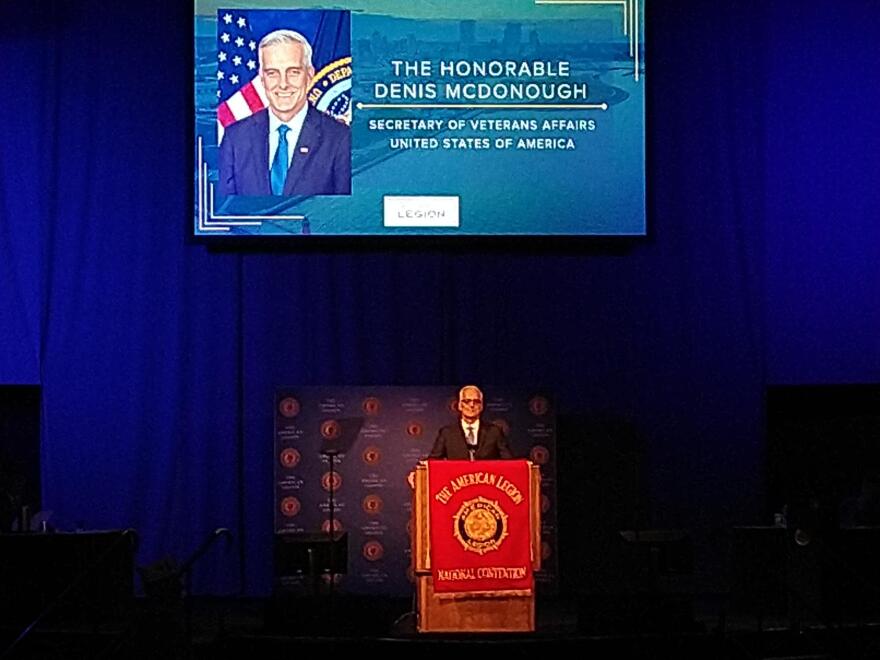As the calendar turned overnight to September, it became National Suicide Prevention Month. One prevention effort getting special attention in Milwaukee this week is aimed at military veterans.
A federal study released last year shows that in 2019, about 6,200 U.S. veterans committed suicide. In Wisconsin, 95 veterans took their own life. Most of those who died were men, with 55-74 years old being the largest age group.
Those are the latest numbers available.
The national number has remained close to six-thousand per year all this century, but the 2019 figure was down about 8% from the year before.
U.S. Veterans Affairs' secretary Denis McDonough told the American Legion national convention in Milwaukee Wednesday that the Biden Administration is trying to keep the number headed downward.
"By providing first-of-their-kind grants to suicide prevention organizations on the ground, where communities know their vets and what they need best," McDonough said. "By rolling out 988, the new national suicide prevention hotline, that connects vets quickly and directly to the veteran crisis line by dialing 9-8-8, then pressing one," said McDonough.
McDonough said the VA also offers online mental health sessions to veterans who want a tele-health option during the COVID-19 pandemic.
He told the Legion convention that suicide prevention is his department's top clinical priority, with VA medical facilities using suicide prevention teams to evaluate at-risk veterans and connect them to treatment.

Later, speaking with news reporters, McDonough also said with guns being the most frequent cause of veteran suicide deaths, the VA is focused on firearm safety.
"We're urging veterans and families to use things like trigger locks. To ensure that at a moment of crisis, that there is the distance between a veteran and a firearm. We know that suicide ideation—when it happens—the time between ideation and action is often a fleeting moment—minutes, even seconds. And, the steps we can take now with our veterans and their families to be prepared, gives us good opportunity," McDonough said.
A Government Accountability Office report released last year said the VA doesn't have a good idea of how its suicide prevention efforts are affecting staff caseload. Some workers report burnout, high turnover and insufficient guidance for new initiatives.
So, McDonough says the VA supports a new effort by The American Legion, which at nearly two million members, is the nation's largest veterans organization.

The Legion's Be The One campaign urges veterans, family members, current servicemen and women and others to take action when they believe another vet is at risk of suicide.
A past National Commander of the Legion, Denise Rohan, who lives near Madison, said veterans can also self-report: "If you're out there and you feel like you're sinking, and you feel like you need something, don't be afraid to ask."
Ask, and Rohan said, people will help.
"We have Veterans Service Officers across the state of Wisconsin, county Veterans Service Officers. The American Legion also has a service office here, in the Milwaukee area," Rohan told WUWM.
Daniel Seehafer, the Legion's national legislative chairperson and pastor in Horicon, said the Legion and VA do have resources.
"That do assist with financial problems if there are marital problems. We can get a job for any vet. If they are dealing with unemployment and think there's no way to pay bills. There's no reason to say. 'There's no hope,'" Seehafer said.
While the American Legion and VA focus on preventing veteran suicides, federal data show about 87 percent of adults who kill themselves are not veterans.
Many other organizations will be reaching out to the non-military community during September--National Suicide Prevention Month.






